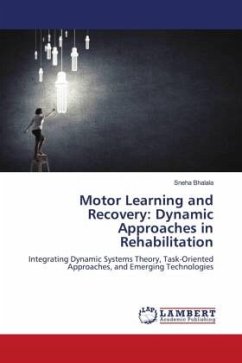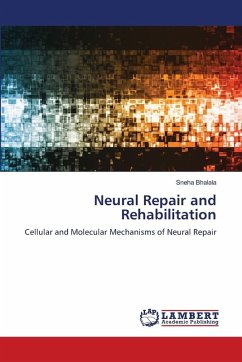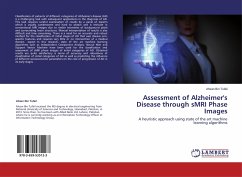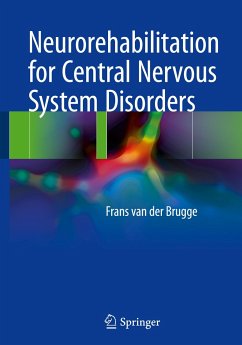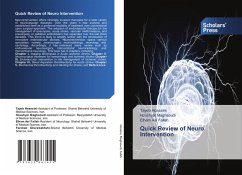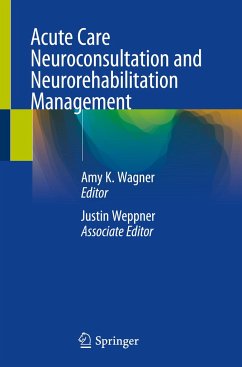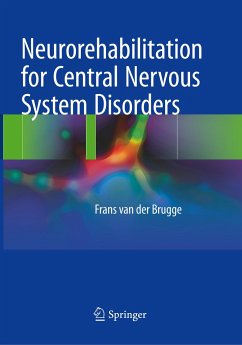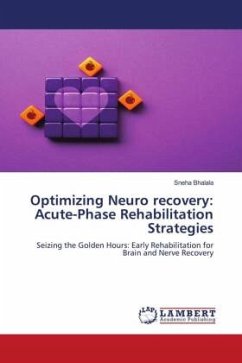
Optimizing Neuro recovery: Acute-Phase Rehabilitation Strategies
Seizing the Golden Hours: Early Rehabilitation for Brain and Nerve Recovery
Versandkostenfrei!
Versandfertig in 6-10 Tagen
29,99 €
inkl. MwSt.

PAYBACK Punkte
15 °P sammeln!
This document details neurorehabilitation strategies during the acute phase of neurological illness or injury (e.g., stroke, brain trauma). It highlights that early rehabilitation (or "early mobilization") aims to prevent deterioration, restore function, and reduce complications. Early rehab starts as soon as possible, including tasks like mobilization, positioning, physical therapy, and addressing complications (e.g., pain, infections, dysphagia).Key points include:Phases of rehabilitation: Different models (e.g., German Phasenmodell) guide the transition from acute care to rehabilitation.Com...
This document details neurorehabilitation strategies during the acute phase of neurological illness or injury (e.g., stroke, brain trauma). It highlights that early rehabilitation (or "early mobilization") aims to prevent deterioration, restore function, and reduce complications. Early rehab starts as soon as possible, including tasks like mobilization, positioning, physical therapy, and addressing complications (e.g., pain, infections, dysphagia).Key points include:Phases of rehabilitation: Different models (e.g., German Phasenmodell) guide the transition from acute care to rehabilitation.Common clinical issues: Disorders of consciousness, comorbidities (e.g., heart problems), pain, dysphagia.Complications: Immobility-related muscle loss, lung function decline, and critical illness myopathy/polyneuropathy.Interventions: Early mobilization, respiratory care, cardiovascular training, and specialized therapies for upper/lower extremities and aphasia.Psychological impact: Delirium, depression, and PTSD are common in ICU patients, requiring psychological support.



